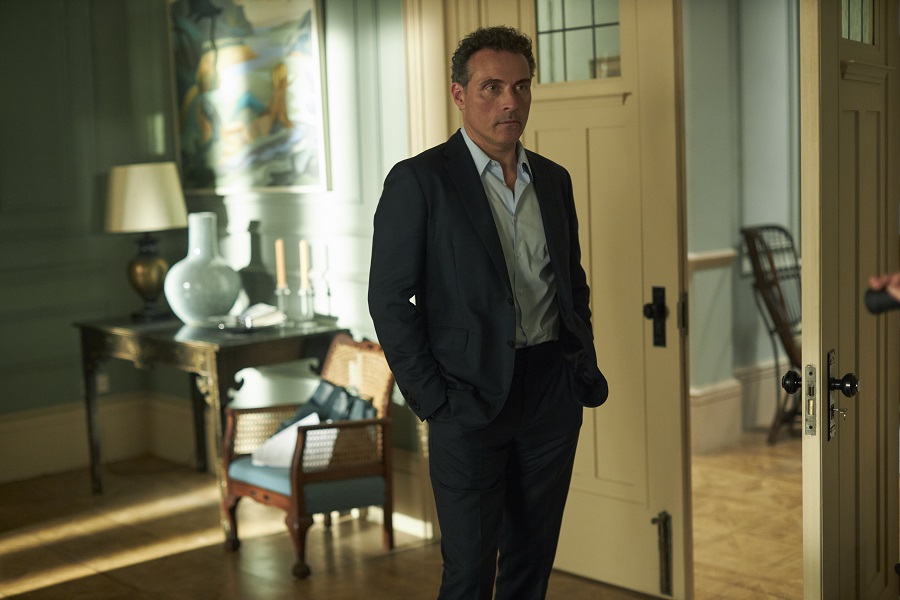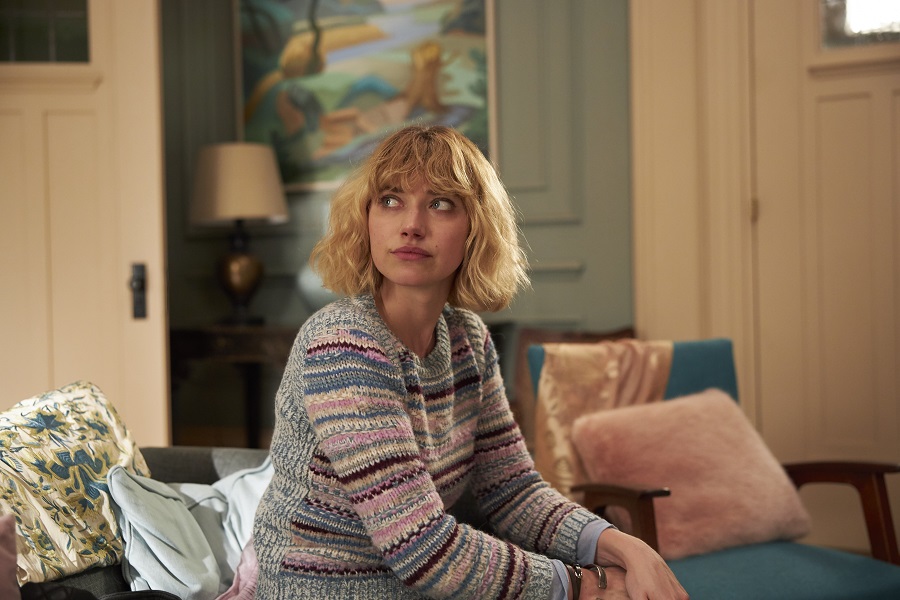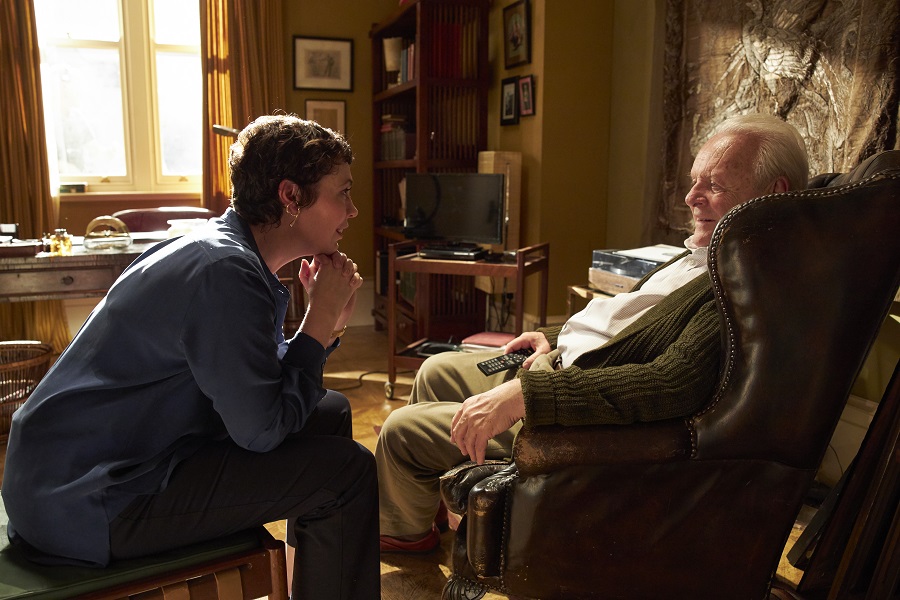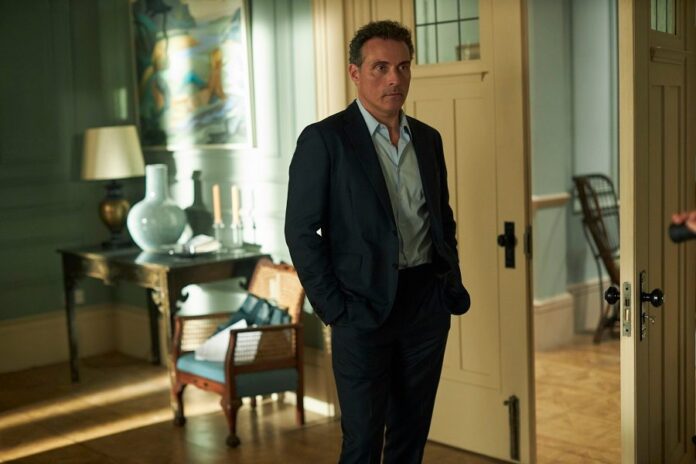DUBAI: How does a masterpiece get made? There is a pervasive idea that great art is born only through struggle. To film the most harrowing, emotional scenes, to capture true human suffering, some think that the performers themselves must suffer too. Worst of all, some believe that great artists have the right to be cruel to those they work with if it is seen as elevating the art in some way.
“The Father,” recently nominated for six Academy Awards including Best Picture and now showing in GCC cinemas, dispels that notion entirely. The film, written and directed by Florian Zeller, is a heartbreaking, gut-wrenching masterpiece that was, in actual fact, made by some of the most joyful performers to ever grace the screen.
Olivia Colman, who is nominated for Best Supporting Actress opposite Best Actor nominee Anthony Hopkins, has no patience for the idea that she cannot turn every set she steps on, from “Broadchurch,” to “The Crown,” to “The Favorite” — all of which she won top honors for — into a place full of warmth, love, and laughter.
“I will debate that till the cows come home with anybody who thinks you have to have a vile director and a toxic environment. It’s utter nonsense. Florian wrote this beautiful script, and he was the gentlest, most intelligent leader of this ship,” Colman tells Arab News.
“We felt that he could do anything. And everyone wanted to do the right thing for him, you know? Because he was so lovely. If you get someone who’s a jerk, you don’t want to do nice things; you don’t want to do good work for them,” Colman continues.
Hopkins, who, at 83, just became the oldest man ever nominated for best actor, has entered a new phase in his career over the past few years, becoming something of a social media star. The image of the terrifying serial killer Hannibal Lecter, his most iconic role, has been replaced by an aging painter who posts videos of himself hugging his cat Niblo and dancing for his 2.7 million Instagram followers.

On set, Hopkins and Colman shared an instant connection, with Hopkins always reacting the loudest to Colman’s many jokes when the cameras weren’t rolling.
“It’s too easy, really. He’s so ready and up for a laugh. You know, the slightest joke or pulling a face! He loves life. He loves being alive. He loves working. He’s ready for a laugh, you know? He’s the most joyful man you could ever meet,” says Colman.
In turn, Hopkins would entertain Colman with some of his best impressions (“Jimmy Stewart was one of my favorites,” says Colman), often breaking into them the second Zeller yelled cut.
Colman knows her comedic limits, however, and left the impressions to her tenured colleague.
“I’m rubbish at impressions. I can’t. Terrible,” says Colman.
Long before Colman and Hopkins were involved, “The Father” began as a highly-acclaimed French play in 2012 written by Paris-native Zeller, gaining global attention when it debuted at the Ustinov Studio of the Theatre Royal in Bath, England in 2014, before moving to London’s West End. In 2016, the play ran on Broadway with Frank Langella in the lead role, for which he won a Tony Award. The work has been named one of the best plays of the last decade.
The story follows a man battling with the effects of dementia and the daughter who is finding it increasingly difficult to take care of him while also living her own life. It starts out darkly funny before quickly becoming horrifying, as the film pulls the viewer into the titular father’s perspective and makes his fear, confusion and temporal disassociation feel uncannily real.

When translating it into a film, Zeller changed the lead character’s name from André to Anthony. The change was not a coincidence — Hopkins was his top choice to inhabit the role. He got his wish, and with Oscar-winner Colman flanking him as the daughter, he got his dream.
“It was the most intense, enjoyable experience. And I’m so grateful because it happened with the most talented people. I think it was the most joyful experience of my whole life, actually,” says Zeller.
Zeller was a first-time film director with “The Father,” though Colman says you’d never know it, as Zeller knew exactly what he wanted at all times, helming the feature with focus and care.
“It’s just a mix of instinct and a desire to tell a story. We felt that it had to be told and, you just try. You never know; it’s a journey with a lot of doubts. But the conviction has to be higher than the doubts,” says Zeller.


